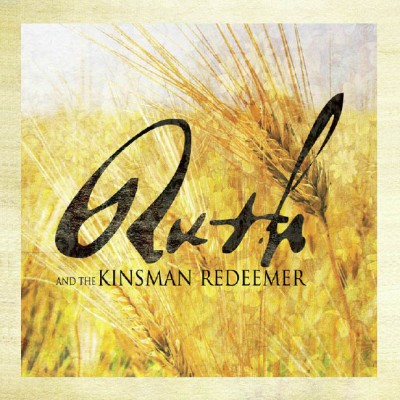Sermon Summary
This week, Pastor Dan concluded part four of his sermon series on “Ruth and the Kinsman Redeemer.” Last week, we learned that Boaz and Ruth had met when Ruth, the impoverished foreign widow, gleaned in rich Boaz’s field. Ruth had already trusted in the One True God to provide her with spiritual security by following her mother-in-law Naomi to Judah. But Naomi sought to provide physical security for Ruth by telling her about the Israelite custom of the “Kinsman-Redeemer.” It was the responsibility of the closest kinsman to “redeem” any relatives who got into financial trouble. If a Jewish family got into financial trouble so that they had to sell their land, their closest relative had to pay off their debts, returning their land to them and liberating their family. Boaz, a close relative of Naomi’s husband, could marry her and make sure that she didn’t die an obscure, impoverished widow.
Boaz, impressed with her virtue and generous toward his poor and vulnerable kin, told Ruth that, one way or another, he would ensure that she was taken care of. You see, there was a relative who was actually more closely related to Naomi’s line of the family, and so it was his responsibility to marry Ruth. But if he wouldn’t, Boaz agreed to do so.
During a meeting with Boaz at the city gate, the closest relative declared that he would not marry Ruth, saying “I cannot redeem it for myself, because I would jeopardize my own inheritance” (Ruth 4:6). It’s hard to understand exactly what he is saying if we don’t realize something about the duties of kinsman- redeemers: they were not permitted for any reason to decline to redeem their kin out of trouble. This close relative wouldn’t mind having Naomi’s land, but he was unwilling to marry Ruth.
This is because the way that you helped these two widows was by using your own money to buy Naomi’s land. Then, you would marry the widow—but the kids she had with you would bear the dead man’s name, not yours. Then, you would give that land that you paid for back to those kids who didn’t even bear your name. The close relative was unwilling to lessen his own children’s inheritance in order to protect and provide for his relatives Ruth and Naomi. So Boaz stepped up and agreed to marry Ruth.
The closest relative in our story was concerned that his name would flourish. He was so concerned about his name being preserved and protected, that he was willing for Naomi’s name to die out. Question: What is his name? History doesn’t even record it! Boaz’s name is there. Ruth the Moabitess’s name is there. But the fellow who was so concerned about protecting his own name—well, we just know him as “the closest relative.”
Boaz and Ruth had a son. His name was “Obed.” Obed had a son; his name was Jesse. Jesse had a son; his name was David, who became…King David! Boaz didn’t cling to his life, but “Mr. No-Name Closest Relative” sought to keep his life—and moved into obscurity. Not only did Boaz’s name get preserved, his name got elevated! Israel’s most famous king was David, the son of Ruth. And David’s most famous son was…Jesus. Because of them, you and I have a kinsman-redeemer, the Lord Jesus.
The “big idea” of the book of Ruth is that God is committed to accomplishing his redemptive plans. He does this both through his own “behind-the-scenes” providential actions and through the faithful, sacrificial, loving choices of a small remnant of believers. The faithful remnant are just average folks who trust God and don’t cling to their own lives. They give of themselves joyfully to God and others. Church family, let’s make it our goal to live as God’s faithful remnant, remembering “If you cling to this life, you lose. If you give in this life, you win” (Matthew 10:39).
Application / Challenge
- Live as the faithful remnant—regardless of what others are doing. Make it your goal to be faithful, rather than “successful”. Leave that in God’s hands. Aim for: “well-done good and faithful servant”.
- We really do have all the resources we need in order to obey and honor God and to love and serve others. So, just give what you have—and that will be acceptable to God (2 Corinthians 8:12).
- Fix our hope on our returning messiah (rather than better health, a restored relationship, more money, a restful vacation or retirement, finishing your degree or getting a job, etc.). As Peter put it: “Fix your hope completely on the grace to be brought to you at the revelation of Jesus Christ.” (1 Peter 1:13)


